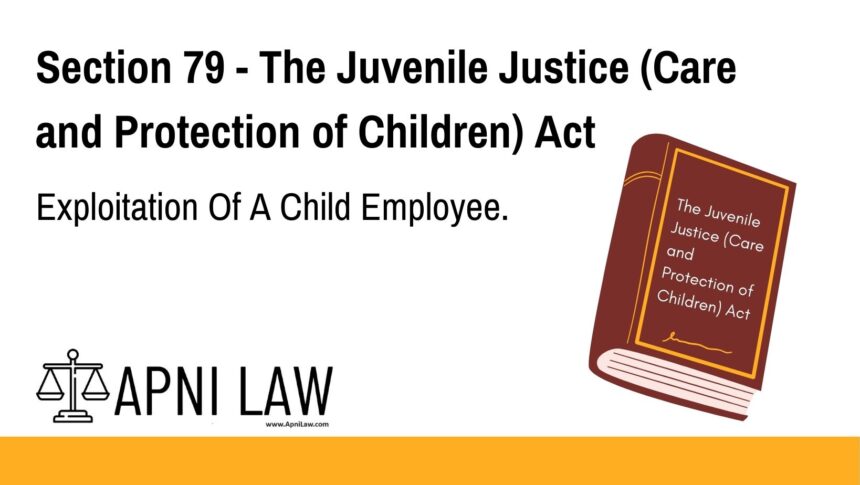Code: Section 79 of the Juvenile Justice Act
79.
Exploitation of a child employee.
Notwithstanding anything contained in any law for the time being in force, whoever ostensibly engages a child and keeps him in bondage for the purpose of employment or withholds his earnings or uses such earnings for his own purposes shall be punishable with rigorous imprisonment for a term which may extend to five years and shall also be liable to a fine of one lakh rupees.
Explanation: For the purposes of this section, the term “employment” shall also include selling goods and services, and entertainment in public places for economic gain.
Explanation of Section 79
Section 79 of The Juvenile Justice (Care and Protection of Children) Act addresses the exploitation of child labor. This section specifically focuses on cases where a child is forced into employment, and their earnings are either withheld or used by someone else for their own benefit. The section includes various forms of exploitation, such as child labor in selling goods, services, or engaging in public entertainment for financial gain.
The punishment for engaging in such exploitation is rigorous imprisonment of up to five years. Additionally, the offender is subject to a fine of up to one lakh rupees.
Illustration
Example 1: Withholding Child’s Earnings
An adult forces a child to work in a shop and withholds the money the child earns. The person will be punished with up to five years in prison and a fine under Section 79.
Example 2: Using a Child for Public Entertainment
A child is forced to perform in public places for entertainment without receiving any payment. The individual who exploits the child can be punished under Section 79.
Common Questions and Answers on Section 79
1. What is considered “employment” under Section 79?
- Answer: Employment in this section includes all forms of work, such as selling goods, providing services, and engaging in public entertainment for monetary gain.
2. What penalties are imposed for exploiting a child employee?
- Answer: The offender faces rigorous imprisonment for up to five years and a fine of up to one lakh rupees.
3. Who is responsible if a child’s earnings are used for someone else’s benefit?
- Answer: Any person who withholds or uses a child’s earnings for their own benefit, rather than giving it to the child, is liable under this section.
Conclusion
Section 79 of The Juvenile Justice (Care and Protection of Children) Act aims to protect children from exploitation in employment settings. It ensures that children are not forced into labor and have access to their rightful earnings. The strict penalties set out in this section highlight the importance of safeguarding children’s rights and preventing child labor.








